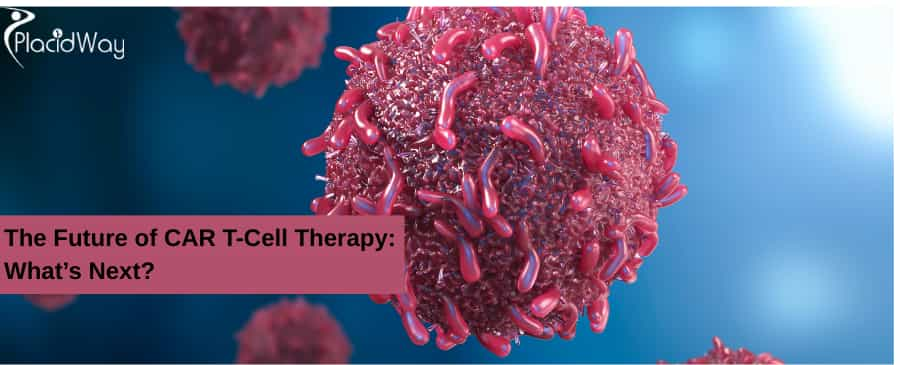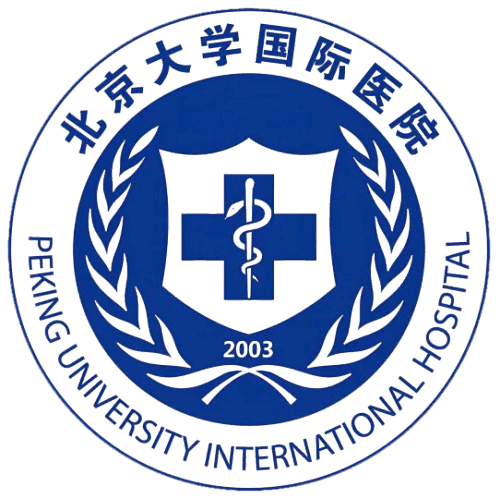
Cancer treatment has evolved dramatically in recent years, and CAR T-cell therapy is one of the most revolutionary breakthroughs in modern medicine. This innovative immunotherapy is changing how we treat blood cancers and is now being explored for solid tumors. China has quickly become a global leader in CAR T-cell therapy research, with cutting-edge advancements and increasing accessibility to this life-saving treatment.As research progresses, the future of CAR T-cell therapy in China looks incredibly promising. Scientists are working on next-generation CAR T-cell therapies, improving treatment effectiveness, and expanding its use beyond blood cancers. But what can we expect in the next five years? This article explores emerging advancements in CAR T-cell therapy, how researchers are improving its application for solid tumors, and what these innovations mean for the future of cancer treatment in China.
Key Insights at a Glance
- Next-generation CAR T-cell therapies aim to improve safety, effectiveness, and accessibility.
- Scientists in China are making progress in using CAR T-cell therapy for solid tumors.
- The next five years will see faster approvals, reduced costs, and increased patient access.
- Personalized medicine and gene-editing technologies will refine CAR T-cell treatments.
- China is at the forefront of CAR T-cell therapy research, with new clinical trials and innovations.
Emerging Advancements in Next-Generation CAR T-Cell Therapies
CAR T-cell therapy has demonstrated remarkable success in treating blood cancers, but researchers are continuously working to enhance its effectiveness and reduce risks. The next wave of CAR T-cell advancements focuses on the following improvements:
Enhancing T-Cell Persistence and Durability
One major limitation of current CAR T-cell therapies is that T-cells may lose their effectiveness over time. Researchers are now modifying CAR T-cells to:
- Extend their lifespan in the body, allowing them to attack cancer cells for a longer period.
- Prevent T-cell exhaustion, a condition where immune cells become inactive over time.
- Improve memory CAR T-cells, enabling them to respond more efficiently to cancer recurrences.
Reducing Side Effects Like Cytokine Release Syndrome (CRS) and Neurotoxicity
CAR T-cell therapy can cause cytokine release syndrome (CRS), a severe immune response that leads to inflammation and organ damage. To combat this, scientists are developing:
- "Switchable" CAR T-cells, which can be turned on or off as needed to prevent excessive immune responses.
- Dual-targeting CARs, which recognize multiple cancer markers and reduce the likelihood of off-target effects.
- Enhanced safety mechanisms, such as engineering CAR T-cells with "suicide genes" that can be activated to destroy the therapy if severe side effects occur.
Off-the-Shelf CAR T-Cells (Allogeneic CAR T-Cells)
Traditional CAR T-cell therapy is a personalized treatment, requiring the patient’s own T-cells to be extracted, modified, and reinfused. This process can take several weeks and is expensive. Off-the-shelf CAR T-cells aim to:
- Use T-cells from healthy donors, eliminating the need for customization.
- Reduce manufacturing time and costs, making treatment more widely available.
- Allow for immediate administration, which is crucial for patients with aggressive cancers.
Universal CAR T-Cells with CRISPR Gene Editing
Scientists are using CRISPR technology to create universal CAR T-cells that could work for multiple patients without rejection. These gene-edited CAR T-cells could:
- Improve patient compatibility, reducing the need for individualized treatments.
- Be mass-produced, lowering overall treatment costs.
- Enhance targeting ability, making them more effective against various types of cancers.
Combination Therapy Approaches
To increase effectiveness, researchers are exploring combination therapies, such as:
- CAR T-cell therapy + checkpoint inhibitors (to enhance immune activation).
- CAR T-cell therapy + radiation or chemotherapy (to weaken tumors before introducing CAR T-cells).
- CAR T-cell therapy + cancer vaccines, which train the immune system to recognize cancer cells more effectively.
These strategies could help increase response rates and improve long-term outcomes.
How Scientists Are Improving CAR T-Cell Treatments for Solid Tumors
Currently, CAR T-cell therapy is most effective for blood cancers, but its application to solid tumors (such as lung, breast, pancreatic, and brain cancers) has been challenging due to:
- The tumor microenvironment: Solid tumors create a protective barrier that prevents immune cells from entering.
- Limited tumor-specific markers: Blood cancers have clear markers like CD19, but solid tumors have more complex and overlapping proteins, making it harder to design CAR T-cells that only target cancer cells.
- T-cell exhaustion: CAR T-cells often lose effectiveness when fighting solid tumors.
Solutions and Innovations in CAR T-Cell Therapy for Solid Tumors
Scientists are now developing new CAR T-cell strategies to address these challenges:
Dual-Targeting CARs
Instead of recognizing just one marker, these CAR T-cells attack multiple tumor antigens, reducing the chance of cancer evasion.
Armored CAR T-Cells
These cells are engineered to secrete immune-boosting cytokines, which help overcome the suppressive tumor microenvironment.
CAR Macrophages and Natural Killer (NK) Cells
Researchers are testing CAR macrophages and CAR-NK cells, which may be better suited for attacking solid tumors.
Localized Delivery of CAR T-Cells
Instead of intravenous infusion, CAR T-cells may be directly injected into tumors, improving their effectiveness.
These advancements could help expand CAR T-cell therapy beyond blood cancers, making it a viable treatment for solid tumors.
What to Expect in the Next 5 Years for Cancer Treatment in China
The next five years will see major advancements in CAR T-cell therapy in China, including wider availability, improved effectiveness, and reduced costs. Here’s what patients can expect:
More Clinical Trials and Faster Approvals
China is leading the world in CAR T-cell clinical trials, with hundreds of studies already underway. Regulatory agencies are expected to accelerate the approval process, making these therapies more widely available in public and private hospitals.
Lower Costs and Greater Accessibility
Currently, CAR T-cell therapy is expensive, but government initiatives and local manufacturing are working to lower costs. Over the next five years:
- "Off-the-shelf" CAR T-cells will reduce treatment costs.
- Government subsidies and insurance plans will help make the therapy more accessible.
- More hospitals across China will begin offering CAR T-cell therapy.
Expansion to More Cancer Types
As research progresses, CAR T-cell therapy will expand beyond blood cancers to treat:
- Liver cancer
- Lung cancer
- Gastric cancer
- Brain tumors
- Other difficult-to-treat solid tumors
Personalized Medicine and Gene-Editing Technologies
The future of cancer treatment lies in personalized medicine, where therapies are tailored to each patient’s genetic profile. Scientists are using:
- CRISPR gene-editing to improve CAR T-cell effectiveness.
- Artificial intelligence (AI) models to predict patient responses.
- Biomarker testing to customize treatments for individual patients.
By 2030, personalized CAR T-cell therapy could become the standard of care in China, offering cancer patients better outcomes with fewer side effects.
FAQs About the Future of CAR T-Cell Therapy
Will CAR T-cell therapy become more affordable in the future?
Yes, as researchers develop off-the-shelf (allogeneic) CAR T-cells and improve manufacturing techniques, costs are expected to decrease significantly. Governments and insurance providers in many countries, including China, are working to expand coverage, making the treatment more accessible.
How soon will CAR T-cell therapy be effective for solid tumors?
CAR T-cell therapy for solid tumors is currently in clinical trials, with lung, breast, and pancreatic cancers being key research areas. Scientists expect improved CAR T-cells for solid tumors to be widely available within the next 3 to 5 years, depending on trial success and regulatory approvals.
What makes solid tumors more difficult to treat with CAR T-cell therapy?
Solid tumors present unique challenges, such as:
- Protective tumor microenvironment, which prevents CAR T-cells from reaching cancer cells.
- Limited tumor-specific markers, making it harder to develop targeted therapies.
- T-cell exhaustion, where immune cells lose effectiveness over time.
- Scientists are working on dual-targeting CARs, armored CAR T-cells, and combination therapies to overcome these barriers.
What is the difference between autologous and allogeneic CAR T-cell therapy?
- Autologous CAR T-cell therapy uses the patient’s own T-cells, which are collected, modified, and reinfused. This process takes several weeks but reduces the risk of rejection.
- Allogeneic (off-the-shelf) CAR T-cell therapy uses T-cells from healthy donors, making treatment faster and potentially cheaper. However, it carries a slightly higher risk of immune rejection.
How long do CAR T-cells last in the body?
CAR T-cells can persist for months to years, continuously recognizing and attacking cancer cells. Some patients have remained cancer-free for over 5 years after treatment. However, research is ongoing to determine how to extend the lifespan of CAR T-cells for long-term protection.
Can CAR T-cell therapy be combined with other cancer treatments?
Yes! Scientists are testing combination therapies to improve CAR T-cell effectiveness, including:
- CAR T-cell therapy + checkpoint inhibitors (to prevent immune suppression).
- CAR T-cell therapy + radiation or chemotherapy (to weaken tumors before introducing CAR T-cells).
- CAR T-cell therapy + cancer vaccines, training the immune system to recognize cancer cells more efficiently.
What are the risks associated with CAR T-cell therapy?
The most common risks include:
- Cytokine Release Syndrome (CRS) – A severe immune response causing fever, inflammation, and low blood pressure.
- Neurotoxicity – Some patients experience confusion, speech difficulties, or seizures.
- T-cell exhaustion – Over time, CAR T-cells may lose their effectiveness, requiring additional treatments.
Researchers are developing "switchable" CAR T-cells and safety mechanisms to reduce these risks.
Who is the best candidate for CAR T-cell therapy?
CAR T-cell therapy is currently recommended for:
- Patients with relapsed or refractory blood cancers (such as leukemia, lymphoma, or multiple myeloma).
- Patients who have not responded to chemotherapy or stem cell transplants.
- Those with no severe autoimmune conditions that could interfere with CAR T-cell function.
- In the future, CAR T-cell therapy may expand to treat more cancer types and earlier-stage diagnoses.
Will personalized medicine play a role in the future of CAR T-cell therapy?
Absolutely! Personalized medicine is expected to enhance CAR T-cell therapy by:
- Using genetic profiling to create customized CAR T-cells for each patient.
- Improving gene-editing techniques (like CRISPR) to enhance CAR T-cell precision.
- Tailoring therapies based on an individual’s immune response, ensuring better outcomes.
What does the future of CAR T-cell therapy look like in China and worldwide?
The future of CAR T-cell therapy in China is rapidly expanding, with major hospitals and biotech companies investing in research. Over the next 5 years, expect:
- More affordable and accessible CAR T-cell therapy due to mass production.
- Expanded treatment for solid tumors, including lung, breast, and pancreatic cancer.
- Wider insurance coverage, making the treatment available to more patients.
- Stronger regulatory frameworks ensuring safety and effectiveness.
China is poised to become a global leader in CAR T-cell therapy, shaping the future of cancer treatment for millions worldwide.
Why Choose PlacidWay for CAR-T Therapy in China?
- Trusted Global Medical Tourism Platform – PlacidWay connects international patients with top-quality healthcare providers in China.
- Personalized Guidance – Dedicated patient coordinators help you navigate the entire treatment process.
- Cost Transparency – Get clear information on treatment pricing without hidden fees.
- Accredited Medical Facilities – Partnering with well-established institutions that specialize in CAR-T therapy.
- Multi-Language Assistance – Overcoming language barriers with professional translation and interpretation services.
- Efficient Treatment Coordination – Faster appointment scheduling and streamlined communication with specialists.
- Post-Treatment Follow-Up – Continued support and medical consultation after returning home.
Take the Next Step with CAR T-Cell Therapy in China
If you are considering CAR T-cell therapy and want to explore the latest treatment options in China, PlacidWay is here to help. Our team can connect you with leading hospitals, top specialists, and ongoing clinical trials to ensure you receive the best care.Contact us today to take the next step in your cancer treatment journey!


.png)


Share this listing